Every so often, on the infamous letsrun.com message board, some anonymous runner will post that they plan to chuck it all, move to Flagstaff, go all in and live in their car on a forest road or at an apartment packed with roommates, all to follow their high-altitude and, honestly, delusional dreams of becoming an elite runner, making the Olympic Trials and getting sponsored.
No one takes these missives seriously, of course, and most likely few, if any, follow through on their wild imaginings.
But Aaron Davidson did just that – move to Flagstaff without knowing a soul and eventually qualifying for the U.S. Olympic Marathon Trials – only Davidson forged ahead without feeling the need to advertise it on a forum known for its hubris and toxicity.
“I didn’t seek that kind of validation,” Davidson said. “I just did it. You know, I’ve known a few people over the last year who’ve said they want to try to do this, but either because they don’t have the means or the discipline to do it, they don’t.”
And, perhaps, they wind up wondering what might have been if they gave pro running a real shot.
It takes a special kind of person to do what Davidson has done – committed, dedicated, hard-nosed and, yes, talented – and he is special in another respect that makes his story even more admirable.
Davidson, 25, is neurodivergent. He said he falls along the autism spectrum, which manifests itself in his case in ADHD, delayed processing, dysgraphia and other challenges. He is refreshingly open about his condition, diagnosed during his senior year in high school in Fairfax, Calif.
He sometimes jokes about it on his Instagram account, but says he occasionally hears from others who tell him, “Hey, I’m also an autistic runner, and it’s awesome to see the representation.”
But there’s more to Davidson’s story than his cognitive condition, lots more.
Such as his audacity to think that a runner who only made his top seven varsity cross country team as a senior and who later barely missed qualifying for NCAA Division 3 nationals at tiny Cornell College in Iowa could eventually make it to the starting line and rub shoulders with America’s best marathoners.
His is a story of hope and perseverance, of self-belief and sacrifice, of plain old hard work and devotion. Though he still has yet to attain pro sponsorship, Davidson already silenced many potential eye-rolling, Lets-Run-sniping critics. He’s a 2:16 marathoner, achieved in 2023 at Grandma’s Marathon in Minnesota, who will toe the line Dec. 8 among the elites at the California International Marathon hoping to lower his personal best even further as part of his incremental plan eventually make a career of this burgeoning dream.
At 25, Davidson has four marathons behind him and feels he has the potential to eventually crack the 2:10 mark, which likely would catch the eyes of shoe companies or training groups. If he succeeds, or fails, it won’t be for a lack of trying.
Nursing a latte at a downtown Flagstaff coffee shop one recent day, Davidson exuded energy and charm, displaying both confidence in his ability and self-awareness that he still has a ways to go to reach his goals.
He is intense, chatty, self-deprecating and hyper-focused. His brown eyes bore into his interviewer as he speaks candidly about his neurodivergence, his unyielding affinity for running (and running a lot, say, 130 miles per week), how he has made a go of living the pro runner lifestyle in Flagstaff without actually being an official pro runner. (Short answer on that last point: He burned through his savings his first year here, now works fulltime and trains).
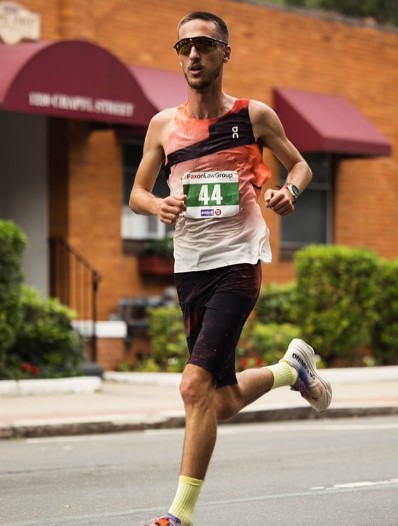
When asked if, in some respects, his autism has helped his running, Davidson paused.
Yes and no, he answered.
Yes, his brain is wired such that he can “lock in” on a certain activity – say, hitting his splits on a tempo run – but such “hyper-fixation,” as he calls it, also can be a detriment when there are times he needs to step back and assess the big picture.
“Autism and ADHD both come with that hyper-fixation,” he explained. “My strength coach here in Flagstaff, before I had even made a joke about it in front of him, he knew I was autistic because he said no neuro-typical person hyper-fixates on the exercises that way. He said to me, ‘Every single set you’re doing you are locked in and hitting the form.’ No one does that.”
Davidson is not one to play up or exploit his condition – “you mean, should I play the autism card to my benefit?” he said, laughing – but, when pressed, admitted it has been tough going in his young life.
“The challenges have been different in different stages of my life,” he said. “In high school, it was kind of like whacking my head against the wall trying to break through some of my limits. And when I got the diagnosis, I learned that’s not how it works. You’re just wired that way. There’s no breaking through it. I was like, ‘Well, shit.’ It was a little demoralizing. The good news is, you have a diagnosis, a label you can like approach strategies to deal with it. But on the downside, it’s you have a diagnosis. It’s this label. As much as you try not to, it’s going to somewhat define you.”
“My strength coach here in Flagstaff, before I had even made a joke about it in front of him, he knew I was autistic because he said no neuro-typical person hyper-fixates on exercises that way. He said to me, ‘Every single set you’re doing you are locked in and hitting the form. No one does that.’”
Aaron Davidson
His one constant, however, has been running. Davidson likes to say he found a home as a runner, especially as an awkward freshman in high school. He wasn’t fast back then – a 24-minute 5K time in cross country, where he was the 18th runner out of 24 – but he took to it. Running became not just therapeutic, but a new way of living in a world he experienced differently than the norm.
And guess what? With all that running, he became fast. Almost willed himself to become fast, though the faster times came slowly, so to speak. Davidson moved up his sophomore and junior years at San Anselmo’s Archie Williams High (formerly called Sir Francis Drake) to 10th or 11th runner. By his senior year, he was solidly on the varsity and ran 16:48 at the state meet.
By that time, Davidson was headlong in love with running, hopelessly smitten. His prep teammates nicknamed him “Bugatti Aaron,” after the sports car Bugatti Veyron, because of his speed obsession.
College beckoned and Davidson cast a wide net to see if he could find a university where he could still compete. He contacted a few lower-level Division 1 schools, a bunch of D2 and D3 schools and some NAIA institutions. The D1 programs looked at his times and never emailed back, and D2 schools weren’t that interested. So, it would be D3 for Davidson.
Actually, there was one D1 college that emailed Davidson back. He had the audacity to fill in a recruiting form for the University of Portland, a top program – “because I liked the area,” he said – and he received a response from the school’s assistant coach, Jack Mullaney, now the head coach of NAZ Elite.
Sure, it was a rejection email, but a gentle one full of hope, with Mullaney telling Davidson that if he continued to lower his times and improve, he might be able to eventually become a walk-on for the Pilots. Rather than being disheartened at another rejection, Davidson took heart from it, and it fueled his fire.
“To get that kind of respect from a coach at the program that was, on paper, way out of my league, it stuck with me,” Davidson recalled. “For a long time, that made me trust that I could get to this kind of level.”
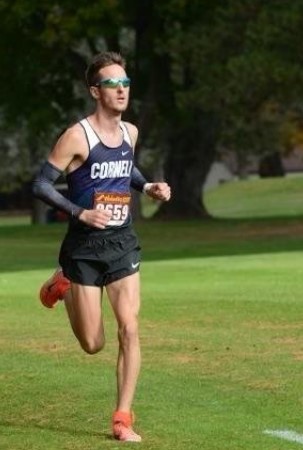
Davidson eventually settled on Cornell College, a private liberal arts school in Mount Vernon, Iowa, with a cross country and track program. It met Davidson’s needs in that, one, he could run there and, two, the school had an academic calendar in which students took just one class for an intense four weeks, followed by a break, then another and so on.
Once at Cornell, he found that most of his teammates weren’t as dedicated to cross country as he. His freshman year, he said, only one other runner was willing to put in the miles. “I was doing 60 to 70 percent of easy miles by myself, workouts solo, too,” he said. “Then, the guy graduated and after that I was alone. But I just got more and more passionate about it.”
Running became a core part of Davidson’s identity. Academics? Well, he was getting by in his major, business management, but his passion was cross country and track. He ramped his mileage to 90 miles a week as a sophomore, when Cornell hired a new coach whom Davidson said emphasized high volume.
At a time – junior year — when many college students are mulling career options, Davidson wasn’t thinking of what he could do with his business degree. Rather, whether he could make it as a pro marathoner.
On the one hand, Davidson acknowledges it was deceptively hopeful to even think such a thing.
On the other hand …
“My indicator workouts were 14:20 (for 5K), and that’s not far from the speed you need to go pro – not a pro 5K runner, but a longer distance guy (marathon) with 14-minute 5K speed,” he said. “Junior year, in the winter, I made a jump, and I thought maybe I could make a career out of this.”
Personal problems intervened and almost derailed Davidson’s life, not just his running aspirations in the winter of his junior year. He spiraled into depression and anxiety, what he called a “mental-health crisis” tied to childhood issues that nearly made him quit running and everything else.
“It laid me low,” he said. “I had to drop my training volume from 95 (miles per week) to 40 because I just didn’t have the mental energy to do it.”
Davidson dug himself out of the crisis and recovered mentally. He also found a renewed interest in running and ramped up training. Essentially, he started training for the marathon (100-plus-mile weeks) while at the same time running cross for Cornell.
“All of a sudden, (he was doing) 20 miles in under two hours,” he said. “My legs were not beat up from it. I thought, this feels natural, this feels right. I did a 10K tempo run in 31:20, and it felt relatively easy… I’d do volume or progressive stuff and get in a rhythm and keep going.”
Over the summer, back at his parent’s house in Marin County, Davidson mulled going all in on the marathon. While working at the local running store, he started marathon training. He tested himself with a 20-mile run “at a moderate pace.” He averaged 5:50, with the final 5K clicking off at 15:40.
“It felt easy,” he recalled. “I was like, ‘OK, sweet, we’re going for this.’”
And after his fifth year at Cornell, where he did manage to earn his degree despite admitting that “academics didn’t really fit for me,” Davidson went back home and trained heavily. He became the manager of the local running store, and he said he saved all his money by living with his parents.
The plan, he said, was to race the Houston Marathon in January, 2023, and if all went well, go “all in” and move to Flagstaff to train at altitude and earn the Olympic Trials qualifying standard.
He ran 2:21:40 in Houston, far from the 2:18 Trials standard. But it was a result that Davidson took as a positive sign.
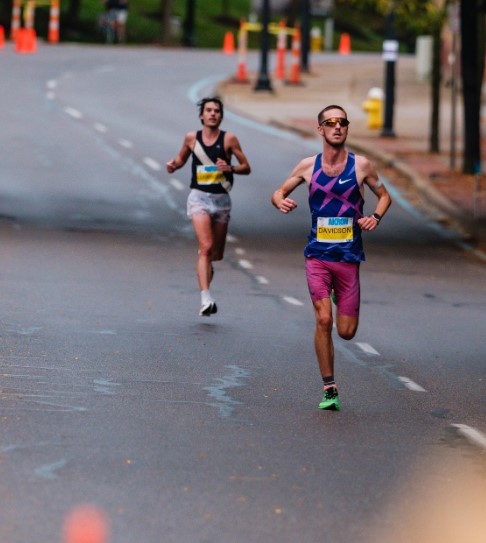
“I didn’t know how to execute the marathon yet,” he admitted. “I didn’t have my own bottles. I had just two gels on me. I greatly overestimated myself. I blew up but my pace only dropped to 5:35 and faded to 6-minute pace. That gave me confidence. To blow up that bad but still hang on to 2:21, you can’t do that if you’re not born to be a marathoner.”
Emboldened, he took that chunk of savings and moved to Flagstaff, sight unseen. He knew no one in the vast running community, but that didn’t deter him. He said he “built a hefty little nest egg” from his job that would last a year.
Davidson found roommates to keep rent down, but decided not to get a job to distract him from his Olympic Trials goal. Running up to 130 miles per week, he did, indeed, reach that goal in August of 2023 by running 2:16:03 at Grandma’s.
Impressive, yes. But not fast enough to lure sponsors or pro teams.
“I think I was a little delusional as to how quickly I thought I could get to a pro contract level,” he said, looking back. “I self-funded the pro-runner lifestyle for a little over a year. That also kind of ruined my training for the Trials.
“My savings were getting low, I broke up (with his girlfriend) right before my (Trials) training block. I had a lot of external stressors. I was missing volume on key days and then making the rookie mistake of trying to make up for it at the end of the week. I burned myself out.”
He DNF’d on race day, but the setback did not deter Davidson.
Savings dwindling, Davidson accepted that he would have to get a job to stay in Flagstaff. But he was determined not to let employment affect his mileage or future marathon plans.
“I had to get my shit together,” he said, bluntly. “I told myself to dedicate 30 to 40 minutes every day to applying for jobs. I used Indeed.com. I didn’t want to work in food service or janitorial. Beyond that, I said, screw it, I’ll apply. I applied for everything. One day, I get a phone call.”
It came from a Flagstaff high-end mattress and bedding firm. Davidson sheepishly admitted he didn’t remember even applying there. He got an interview, though, and the first question asked by the manager was how working at the store would jibe with his racing and training schedule. Davidson assured the manager he’d give plenty of notice if he had to miss time for a race, and he got the job.
“It’s minimum wage with a commission structure for selling luxury beds,” he said. “It’s been nice. The hours have been remarkably flexible.”
Doesn’t working 10 a.m. to 5 p.m. cut into valuable training time?
“No, in fact, I switched my schedule to actually have workdays on my double threshold days because it holds me more accountable,” he said. “It’s like, I work at 10? Then I have to get this workout in. I need to get up and do it. Get off at 4-5 o’clock, head over the track and rip my second workout and go home and eat some dinner.”
Davidson has had two prep races before CIM. In September, he ran 1:04:40 at the USATF 20K Championships in New Haven, then won the Akron Marathon in 2:25 in what was essentially a training run. Last weekend, he won the Phoenix Half Marathon in 1:08:13 then came back 20 minutes later to win the 5K in 15:59.
Life, it seems, has become more settled. He has a new girlfriend, he has friends in Flagstaff, he said he’s in a good place mentally, as well. He is more enthused than ever about his pro prospects, though he now admits it will be a long, incremental road. In all, his neuro-divergence seems more of a plus than a minus.
“Over time, I met more and more people who appreciated those things about me,” he said. “This (autism) is part of who you are and that’s not a bad thing. You are a special, unique individual. In some ways, it does disadvantage me, but I’m at an interesting spot on the spectrum in that, little things, socially, I don’t get. Those small social cues. But big things I do get. I can understand a lot about someone based off very little. For a while, it was just figuring out how to navigate that path and turn it into my strength.”
Davidson, however, is most focused now on CIM. He’s mapped out the course, spoken to others who have run it, such as past CIM winner Paige Wood of NAZ Elite. He’s figured out splits, figures he’ll go steady, if not a bit slow, the first 20 miles of rolling hills, then negative split the final 10K, a slight downhill.
“I’d like to run sub-2:12,” he said. “That’s my plan at this point. I’m not putting too much pressure on one goal. I realize I’m a young marathoner still and I’ve got a lot of time left and don’t need to do everything at once.”
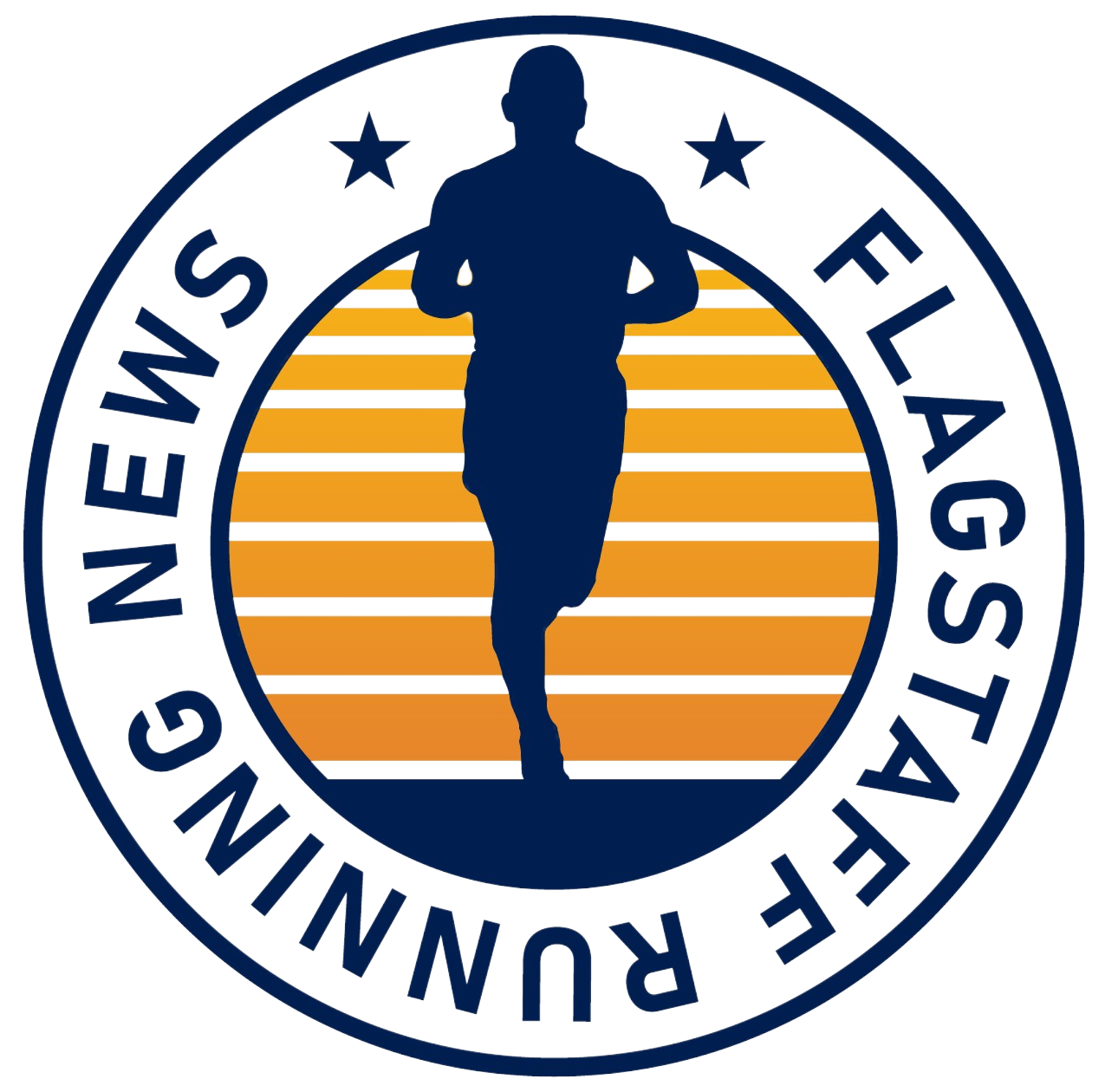
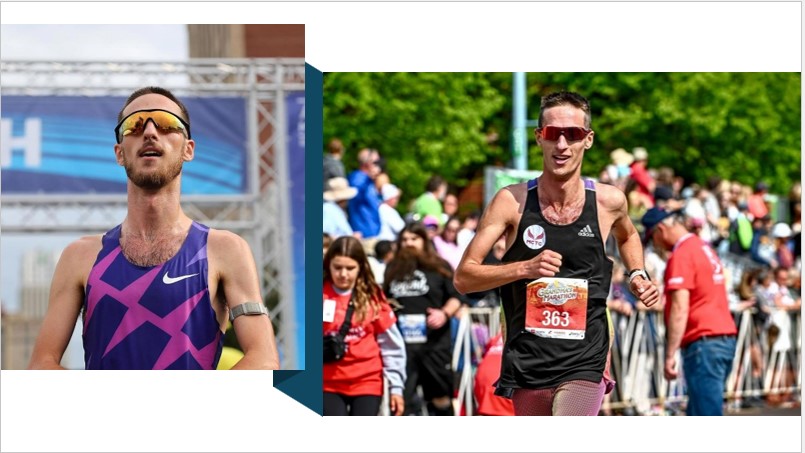
Leave a Reply